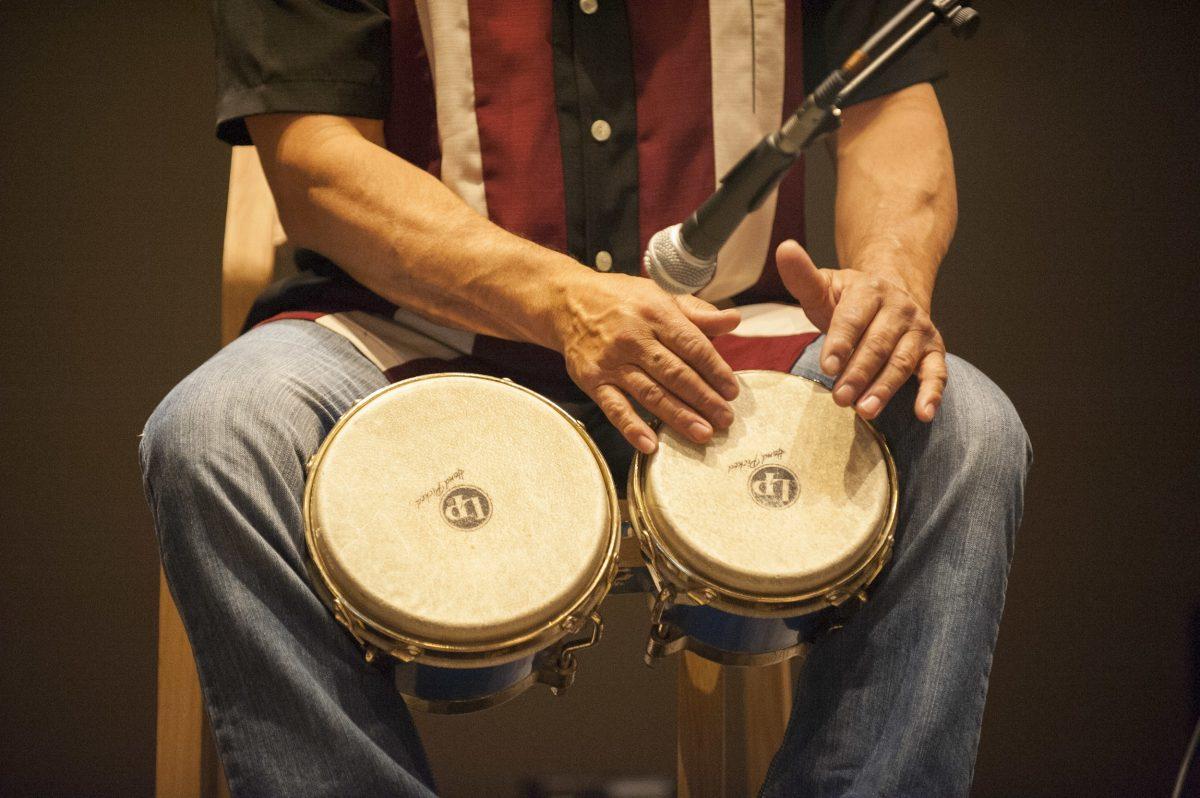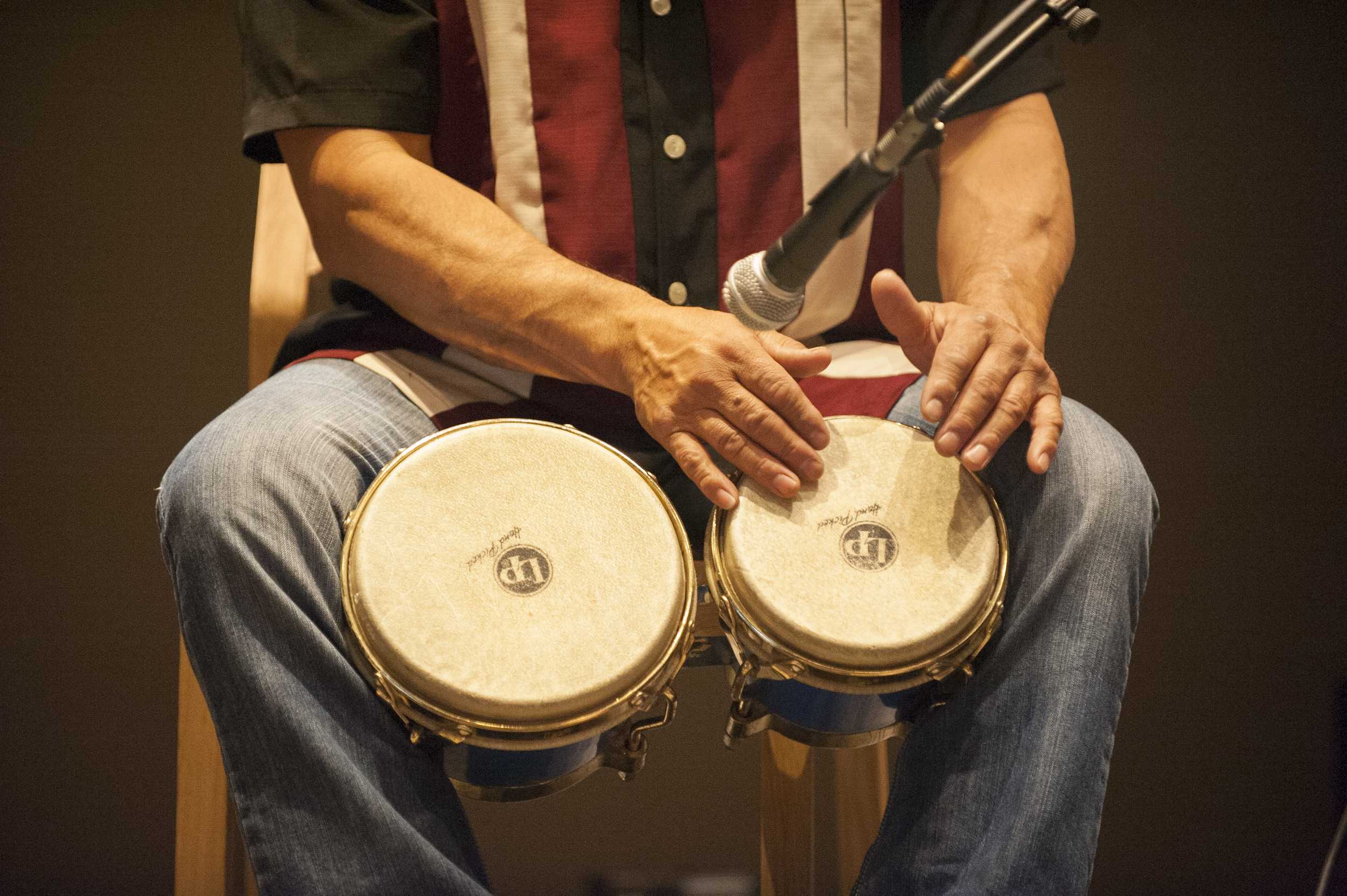For many, the night before Valentine’s Day is filled with anxious last minute gift-selections and frantic dinner reserving.
The vibe was not so at Lobo’s last Thursday, when Huntington Beach-based reggae band, Headshine, performed a set to honor Bob Marley for Black History Month.
As part of the campus-wide observation of Black History Month, the group was invited to perform original Reggae songs to honor their culture.
Even as they set up, the feeling was laid-back and cheerful; smiles and laughter were everywhere to be found as the duo performed sound check.
Orange pill bottles lined the front of the stage, but their purpose as makeshift egg shakers was made clear as the performance began.
The band was comprised of a male duo with an acoustic guitar, a set of bongos and two chilled Sierra Nevadas. They began with some original songs, prefaced by frontman Ros Soumakian who said “We’re just gonna jam!”
Following a load of happy, acoustic vibes and a Weezer cover, they segued into a cover of Bob Marley’s “One Love,” prefaced by an homage to the reggae legend. “Gotta give a little love to Marley, it was his birthday last week,” said Soumakian. He then encouraged audience members to pick up a shaker and join in.
During this time the crowd grew and soon Lobo’s was packed, unfortunately meaning that the band had to compete a bit with the chatter of hungry guests; but by the end of each song a wave of applause cascaded over the tables.
Reggae officially began in the 1960s, and is often thought to be a combination of the ska and rocksteady genres.
Typically associated with dreadlocks and laid-back attitudes, the origin of the word varies with every opinion, ranging from slang roots to a derivative of the Latin root “regi,” meaning king.
Musicians Jackie Mittoo and Winston Wright helped bring the already established rocksteady genre into a new outlet, which was expanded upon by artists like Larry Marshall and The Beltones.
This genre of reggae soon reached popularity in North America and landed on the U.S. Billboard Hot 100 charts in the early 70s via bands like “Three Dog Night” and “Johnny Nash”.
Arguably the most well-known reggae artist is the one and only Bob Marley; a native Jamaican who began his career as a member of various vocal groups which led to further musical exploration.
His band, “Bob Marley & The Wailers,” experienced massive success around the world and won numerous awards throughout Marley’s life and continued to be recognized posthumously.
His father was white and his mother was black, but Marley identified as a black African because of his religious fellowship with Pan-African leaders.
A number of his songs, including “Babylon System” and “Blackman Redemption,” reflect on the struggle he saw between Africans and the West, known as “Babylon.”
When asked about their influences, Headshine said, “Anywhere from Marley to Santana, The Dirty Heads to Jack Johnson.”
As for reggae’s development since its prime, Soumakian says that while it is changing, it still maintains its importance. “From every generation there’s always a new message,” he said.
Some of their favorite reggae artists include “Burning Spear,” “Head Pulse” and “Sublime”; they also recently opened for Ziggy Marley.
This summer they will be releasing a new album with Planet Squared Records that has taken a year to perfect. When asked for advice on life, Headshine said, “We need to put music back in schools. It’s very important that we do.”
As for college students, “Surround yourself with positive people everyday,” he said. To quote Mr. Marley, “Let’s get together and feel alright.”





![[Both photos courtesy of sonoma.edu]
Ming-Ting Mike Lee stepped in as the new SSU president following Sakakis resignation in July 2022](https://sonomastatestar.com/wp-content/uploads/2024/04/CC4520AB-22A7-41B2-9F6F-2A2D5F76A28C-1200x1200.jpeg)



























